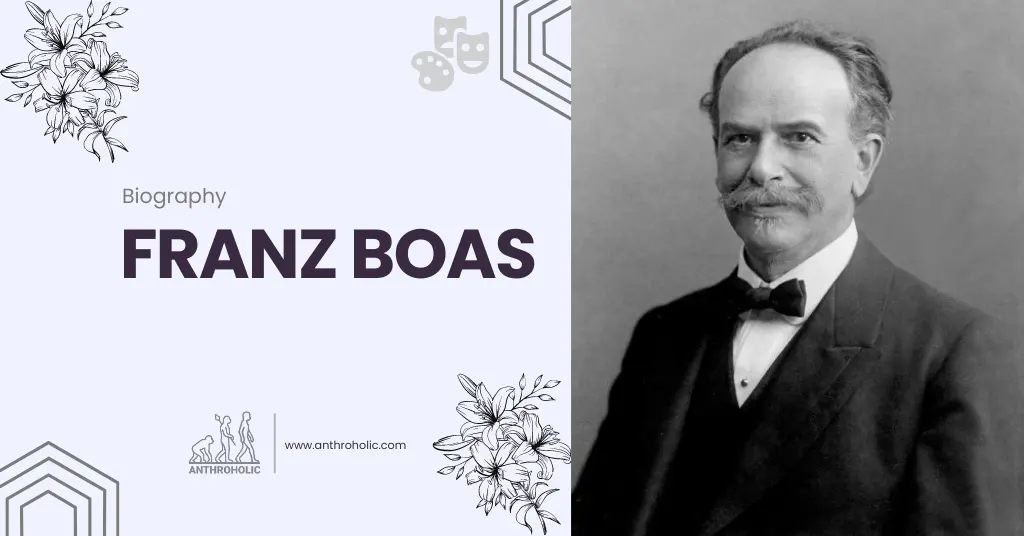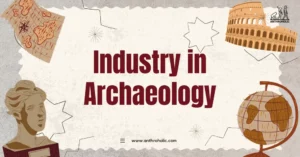AI Answer Evaluation Platform Live Now. Try Free Answer Evaluation Now
Franz Boas
Franz Boas (1858-1942) was a German-American anthropologist often called the “Father of American Anthropology.” He is known for his groundbreaking work in cultural anthropology, linguistic anthropology, and physical anthropology.

Boas was born in Minden, Germany, in 1858. He studied at the University of Heidelberg, where he received his Ph.D. in 1881 in physics. He became interested in anthropology while working as a geographer and natural scientist in the Arctic, where he lived with the Inuit and observed their customs and traditions.
In 1887, Boas moved to the United States and began teaching at Clark University in Massachusetts. He later moved to the American Museum of Natural History in New York City, where he served as curator of anthropology for over 20 years. In 1896, he helped found the American Anthropological Association[1] and served as its president from 1907 to 1909.
Boas believed that culture was the key to understanding human behavior and that different cultures should be studied on their own terms, rather than being judged by Western standards. He emphasized the importance of fieldwork, direct observation, and the collection of empirical data. He also argued that race was not a valid biological concept and that differences between groups of people were largely due to cultural, rather than genetic, factors.
Boas’s most famous works include “The Mind of Primitive Man” (1911), “Anthropology and Modern Life” (1928), and “Race, Language and Culture” (1940). He also trained a generation of prominent anthropologists, including Ruth Benedict and Margaret Mead.
Boas passed away in 1942, but his legacy continues to shape the field of anthropology. His ideas about cultural relativism, the importance of fieldwork, and the rejection of biological determinism have had a profound influence on the discipline.
| Full Name | Franz Boas |
| Birthdate | July 9, 1858 |
| Birthplace | Minden, Germany |
| Education | Ph.D. in Physics, University of Heidelberg (1881) |
| Field of Study | Anthropology |
| Contributions | Cultural relativism, rejection of biological determinism, emphasis on fieldwork and empirical data collection |
| Key Works | “The Mind of Primitive Man” (1911), “Anthropology and Modern Life” (1928), “Race, Language and Culture” (1940) |
| Affiliations | Clark University, American Museum of Natural History, American Anthropological Association |
| Legacy | Considered the “Father of American Anthropology” and his ideas continue to shape the discipline today |
| Death | December 21, 1942 |
Franz Boas personal life
Franz Boas was a private individual and did not disclose much about his personal life. However, here is some information that is known about his personal life:
Boas was married twice. His first wife was Marie Krackowizer, an Austrian student he met while studying in Heidelberg. They married in 1888 and had two children together. After Marie’s death in 1929, Boas married his former student, Frances Fenton, in 1930.
Boas was interested in music and played several instruments, including the piano and violin. He also enjoyed attending concerts and operas.
Boas was fluent in several languages, including German, English, French, and Inuktitut (the language of the Inuit people).
Boas was a supporter of progressive causes, such as women’s suffrage and civil rights for African Americans. He also spoke out against the mistreatment of Indigenous peoples and worked to preserve their cultures.
Boas was a mentor to many prominent anthropologists, including Ruth Benedict and Margaret Mead.
Boas was active in professional organizations, such as the American Anthropological Association and the National Research Council.
Overall, while much of Boas’s focus was on his work as an anthropologist, he had a wide range of interests and was engaged in various social and political causes throughout his life.
Franz Boas Contribution to anthropology
Franz Boas made significant contributions to the field of anthropology. Here are some of his major contributions:
Cultural Relativism: Boas is known for developing the concept of cultural relativism, which argues that different cultures should be studied and understood on their own terms, rather than being judged by Western standards. This idea challenged the prevailing notion that Western culture was superior to other cultures and paved the way for a more nuanced understanding of cultural differences.
Empirical Data Collection: Boas emphasized the importance of collecting empirical data through fieldwork and direct observation. He argued that anthropologists should conduct research in the field, rather than relying solely on second-hand accounts or theories.
Linguistic Anthropology: Boas made significant contributions to the study of language and culture, arguing that language was not simply a tool for communication but also shaped the way people thought and understood the world around them.
Rejecting Biological Determinism: Boas rejected the idea that race was a biologically determined category, arguing instead that differences between groups of people were largely due to cultural, rather than genetic, factors.
Studies of Indigenous Cultures: Boas conducted extensive research on Indigenous cultures, including the Kwakiutl, Inuit, and Native American peoples. His studies were some of the first to document the diversity and complexity of these cultures and challenged popular stereotypes about Indigenous people.
| Title | Year Published | Field | Summary |
|---|---|---|---|
| The Central Eskimo | 1888 | Physical Anthropology | Detailed study of the physical characteristics and way of life of the Inuit people |
| The Mind of Primitive Man | 1911 | Cultural Anthropology | Argues that cultural differences are not the result of biological differences, but rather of historical and environmental factors |
| Handbook of American Indian Languages | 1911 | Linguistic Anthropology | Comprehensive survey of indigenous languages of North America, includes descriptions of grammatical structure, vocabulary, and phonetics |
| Anthropology and Modern Life | 1928 | Cultural Anthropology | Collection of essays that examine the impact of modern civilization on human society and culture |
| Race, Language and Culture | 1940 | Cultural Anthropology | Critiques the concept of race and argues that cultural differences are the result of historical and environmental factors, not biology |
Note: Boas’s contributions to the field of anthropology were vast, and this table only includes a few of his key works.
Thus, Franz Boas was a pioneering figure in the field of anthropology, who revolutionized the way that we study and understand cultures. His concept of cultural relativism challenged the idea that Western culture was superior to other cultures, and emphasized the importance of studying cultures on their own terms. He also emphasized the importance of empirical data collection and fieldwork, and rejected biological determinism, arguing that differences between groups of people were largely due to cultural factors.
Boas’s legacy continues to shape the field of anthropology today, and his ideas have had a profound impact on the way that we understand and interact with different cultures. His studies of Indigenous cultures helped to challenge stereotypes and promote a greater understanding of the diversity and complexity of these societies. Overall, Franz Boas’s contributions to anthropology have been hugely influential, and his work has helped to establish the discipline as a key area of study in the social sciences.
FAQs about Franz Boas
Bibliography
- Boas, F., 1964. The Mind of Primitive Man. The Free Press.
- Boas, F., 1911. Handbook of American Indian Languages. Government Printing Office.
- Stocking, G.W., Jr., 1974. Franz Boas: The Science of Man in the Making. Oxford University Press.
- Boas, F., 1896. The Limitations of the Comparative Method of Anthropology. Science, 4(99), pp.901-908.
- Boas, F., 1928. Anthropology and Modern Life. Norton.
- Young, R.J.C., 2001. Colonial Desire: Hybridity in Theory, Culture, and Race. Routledge.
- Boas, F., 1940. Race, Language and Culture. The Macmillan Company.
- Kroeber, A.L., 1953. Anthropology: Race, Language, Culture, Psychology, Prehistory. Harcourt, Brace & World.
- Boas, F., 1912. Changes in Bodily Form of Descendants of Immigrants. American Anthropologist, 14(3), pp.530-562.
- Nock, A.D., 1952. Franz Boas and the Culture Concept in Historical Perspective. Journal of the History of Ideas, 13(1), pp.47-70.




